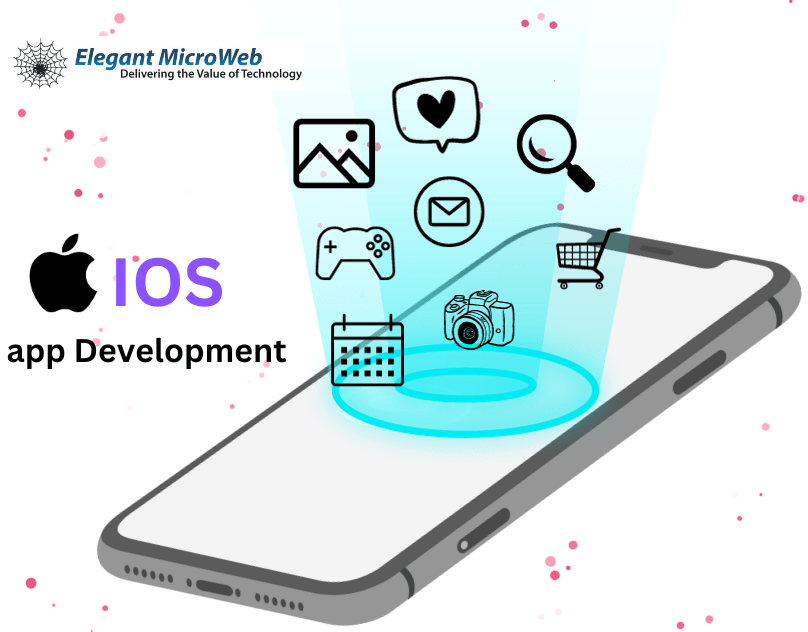iOS still holds a dominant position in the expanding industry of mobile app development. In order to capitalize on the rapidly expanding iOS market, companies and individuals are in great need of contemporary tools for iOS app creation. As an iOS app development agency, you have to use your resources to create phenomenal and entirely performing iOS apps.
We’ll go through the top 15 iOS app development tools in this article to help you stay ahead of competitors.
Leading iOS App Development Tools
Xcode:
Made by Apple, Xcode is the official integrated development environment for creating iOS apps. Code editor, debugger, Interface Builder, and performance analysis tools are all part of this robust toolkit. Xcode is a vital tool for iOS app developers as it streamlines the whole development procedure.
Swift:
Apple’s programming language for creating iOS applications is known as Swift. Because of its efficiency and speed, Swift has emerged as the go-to option for developers. Swift improves the development process overall by enabling developers to produce clear, consistent code with its succinct syntax and robust capabilities.
AppCode:
This alternative IDE for making iOS apps was developed by JetBrains. It supports both Swift and Objective-C and provides a wide range of features like code navigation, intelligent code completion, as well as integrated testing. AppCode provides an environment that is straightforward to use and customize, which increases developer efficiency.
Firebase:
Recently acquired by Google, Firebase is a feature-rich platform for developing mobile and web applications, which also offers an iOS app developer toolkit. Firebase streamlines backend development with capabilities like real-time database, authentication, and cloud operations, freeing developers to concentrate on designing advanced app features.
CocoaPods:
For Swift and Objective-C initiatives, CocoaPods is a dependency management. It simplifies the process of incorporating third-party frameworks and libraries into iOS applications. With CocoaPods, developers can quickly manage project dependencies and spend less time manually configuring and updating dependencies.
TestFlight:
TestFlight enables developers to provide testers with early access to beta versions of their applications. Before the software is made available to the general public, TestFlight helps find and address any bugs roffers insightful feedback.
GitHub:
This popular version control system makes it easier for coders to work together. It guarantees a seamless and well-organized development process by enabling teams to monitor and manage codebase modifications. In iOS app development projects, GitHub is a crucial tool for version control, code review, and collaboration.
Fabric:
Currently a part of Google’s Firebase, Fabric is a modular framework for mobile development. Through a suite of tools, including Crashlytics for crash reporting and Answers for analytics, it offers developers insightful information about user conduct and app effectiveness.
Alamofire:
Alamofire streamlines the network request and response processing, freeing up developers to concentrate on creating dependable and expandable iOS apps. Because of its dependability and ease of use while managing network-related activities, Alamofire is frequently made use of.
Fastlane:
fastlane saves developers a ton of time and effort by streamlining processes like code signing, beta distribution, and update releases. For iOS apps, Fastlane guarantees a seamless and effective deployment process.
Realm:
For iOS app development, Realm is a mobile database solution. This offers a quick and scalable substitute for Core Data, allowing for real-time data synchronization across devices. Realm is the go-to option for developers creating complex iOS apps because of its ease of use and speed.
Sketch:
This well-liked vector graphics tool is useful for designing user interfaces for iOS apps. With Sketch’s powerful features and intuitive UI, designers can create pixel-perfect designs for iOS apps. Its seamless Xcode connection makes the design-to-development process run more smoothly.
Jira:
Developed by Atlassian, Jira is a problem-tracking and task-management platform that helps iOS app development teams collaborate with greater efficiency. Its support for task management, project progress monitoring, and team member communication guarantees the development approach’s streamlining and organization.
Bitrise:
Designed specifically for any mobile app development company, Bitrise is a platform for constant integration and delivery. iOS app developers may release updates more rapidly and effectively since the development and release processes are automated. Bitrise connects to a wide range of resources and applications, providing flexibility for CI/CD processes.
App Annie:
This platform for mobile app analytics and market research offers insightful data on app performance and industry trends. App Annie provides data-driven planning tools for any iOS app development company, assisting it in tracking rivals, comprehending user behavior, and refining their app strategy.
Conclusion
Having the appropriate tools on hand is essential for advancement in the field of developing iOS apps. Whether you work for an iOS app development agency, or hire iOS app development services, implementing these 15 best tools for iOS app development can significantly increase your productivity, creativity, and the overall effectiveness of your iOS applications. By adding these technologies into your development process, you can preserve a competitive edge over competing companies.


![Understanding Data Warehousing: A Beginner’s Guide [2025 Edition] Data Warehousing A Beginner's Guide](https://theinfluencerz.com/wp-content/uploads/2024/12/Data-Warehousing-A-Beginners-Guide.webp)





